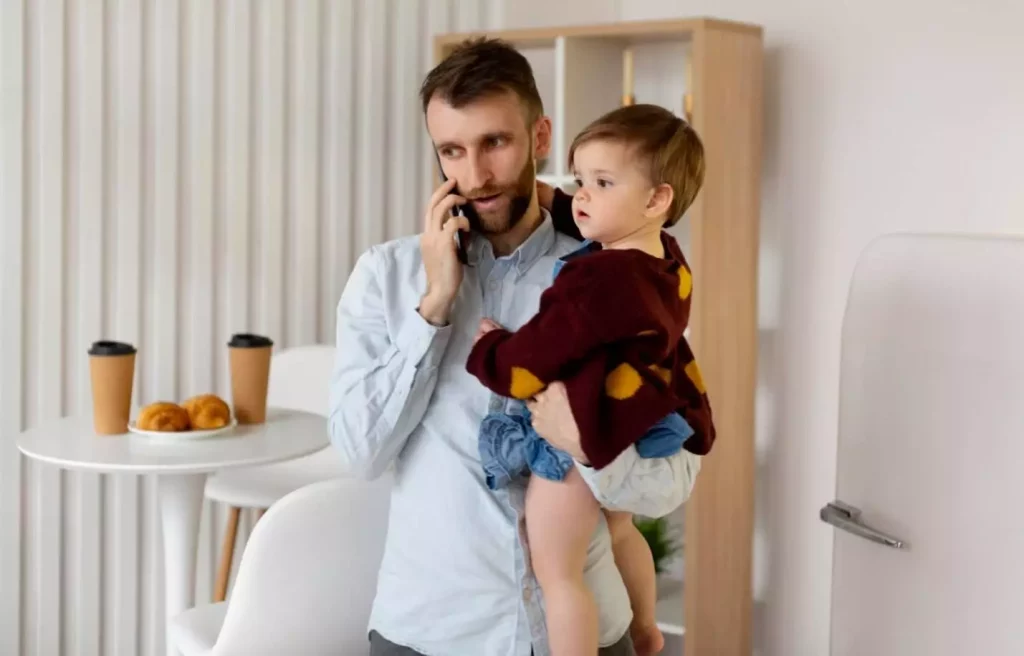Couples with children who do win a divorce, cause such social havoc that they should have to pay a special divorce tax. George Pell
In order to properly prepare a divorce petition and submit it to the court along with other documents like Sacramento county divorce forms, for example, you need to clearly know your legal rights and obligations. This is especially true when it comes to obtaining joint custody of children. A simple guide will help you navigate how to act in such a situation.
Understanding the legal process of divorce
This can be done by directly filing a divorce petition. After being served with a summons, the other spouse has 30 days to respond to it, otherwise, it is considered a failure to fulfill legal obligations. If he or she fails to respond within this time, the court may grant the petitioner’s request without involving the other party in the process.
After responding to the petition, the mother and father must participate in mediation or negotiations to reach an agreement on child custody and maintenance. If no agreement is reached during these negotiations, the judge will make a decision on behalf of both parties, taking into account the interests of the children involved in the divorce proceedings. After completing all these stages, both parties can file a final divorce decree, after which the divorce will be official and allow them to live separately.

Seek professional advice from a lawyer
During the consultation, a qualified human rights advocate provides answers to the following questions
- child custody arrangements;
- payment of alimony;
- visitation schedule and other issues related to raising a child after a divorce.
An experienced lawyer can also advise on how to have sensitive conversations with your child about the divorce to minimize any potential emotional damage they may suffer as a result.
Professional legal advice during a divorce can help you better understand how decisions made during this difficult time will affect your relationship with your child in the long run. A lawyer can help you and your ex-spouse negotiate in good faith and reach a joint agreement that will allow you both to continue raising your child and taking care of him or her even when you are not living together.
Think about the consequences for your child
Children may not understand why their parent’s divorced. They often shift the blame onto themselves, thinking that they have done something wrong. It is imperative to reassure the child that their parents continue to love them and will always be there for them, even if they are no longer together as a couple.
To minimize the negative impact of the divorce process on the child, it is important to maintain open communication between both parents. Make sure that both parents explain the situation in an age-appropriate manner so that the child feels safe and does not think that either parent is abandoning them. This will help reduce any anxiety or fear your child may feel throughout the process. Each parent should spend quality time with the child separately and together can also help minimize any disruption to daily life caused by the divorce.
Here is a table of aggregated static data showing the number of divorce cases that happened with children of different age groups:
| Age Group | Percentage of Children Involved in Divorce |
| 0-2 | 3% |
| 3-5 | 8% |
| 6-9 | 14% |
| 10-14 | 22% |
| 15-17 | 30% |
Make arrangements for child care and support
Parents are encouraged to continue spending time with their children even after the divorce. You can organize joint activities, such as going to the park or playing board games. If this is not possible due to distance or other factors, parents should make a visitation schedule or find other ways to stay in touch with their child.
It is important for divorcing parents to openly voice their needs and expectations, as well as to know what their child needs and wants. Divorce is quite difficult for adults, so involving a child in this procedure can be very difficult. Parents need to provide emotional support and understanding throughout the process so that their child feels secure during such a difficult time in their life and knows that mom and dad love them, regardless of the circumstances.
Develop a parenting plan that works for both parents
This means that one parent will have primary custody of the child, allowing the other to spend time with him or her on weekends or during vacations. The parenting plan should also provide for communication between the parents, such as phone calls or emails, where they can discuss issues related to the child’s care.
Parents need to remember that divorce does not mean that they have to stop raising their divorce toddlers together. They should try to find ways to cooperate to create a stable emotional environment for their child and give him or her the best chance of success. You can organize joint visits to psychotherapy sessions or regular family meetings where both parents can share news about the child’s development and discuss any concerns they have.
Communicate openly with your ex-partner
If one parent is concerned about the other parent’s parenting style or decisions, it should be discussed openly, without blame or criticism. This way, they will both be involved in the child’s life and will agree on joint decisions.
Both parents must remember that divorce is not the end of their parental relationship. They should strive for a peaceful resolution of conflicts and disputes that will allow them both to continue to be actively involved in the child’s life. Both parents should have regular contact with their child, as this will provide the child with a sense of security and safety during this difficult time. Open communication between both parties is the key to ensuring that all participants in the divorce process are on the same page when it comes to parenting.
See a psychologist to help deal with emotions
During a divorce with a child extra attention from both parents is needed. In many cases, children become withdrawn and do not fully understand why their parents are no longer together. This is stressful for them, so going to a psychologist is one of the best ways to help them cope with negative emotions during this difficult time. A psychotherapist provides moral support, gives advice throughout the process, and helps both parents understand how their decisions will affect the child.
He or she will also suggest ways to effectively cope with negative emotions that arise during a divorce, such as
- stress
- guilt
- sadness;
- anger.
Thanks to specialist consultation, all participants in the process will be able to openly express their feelings in a safe and impartial environment. Parents who are planning a divorce should seriously consider consulting a psychologist to help them cope with their emotions during this difficult time.



